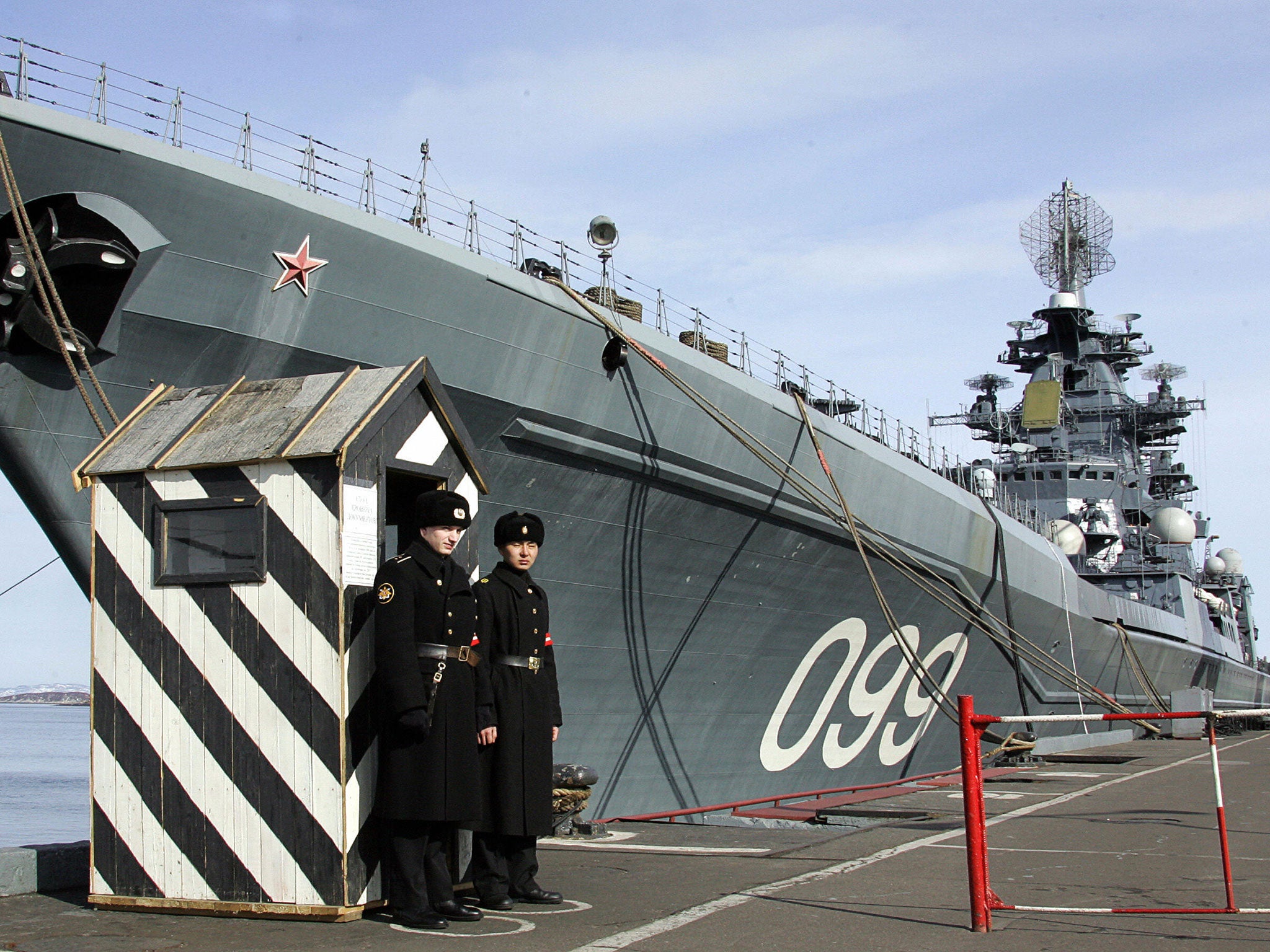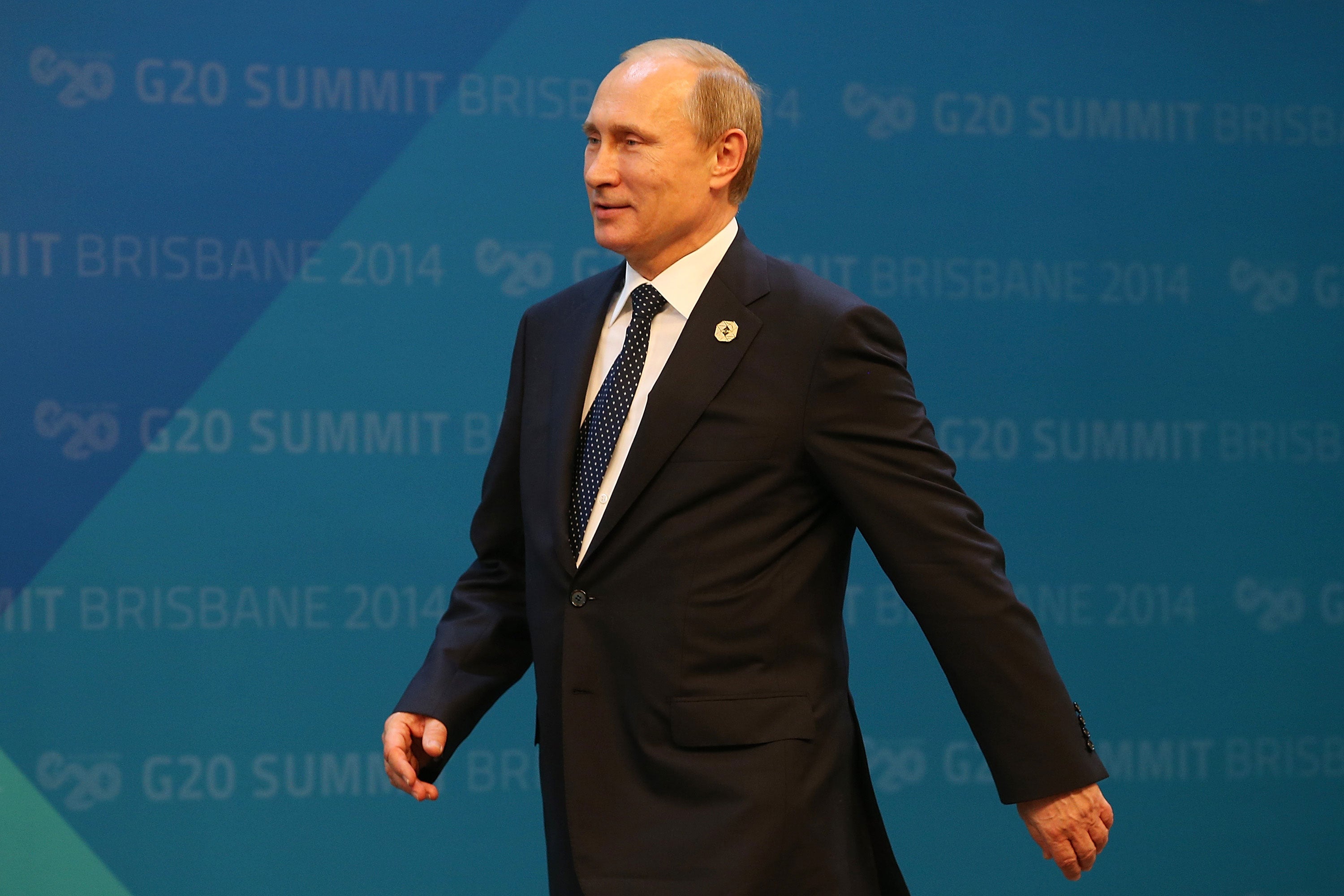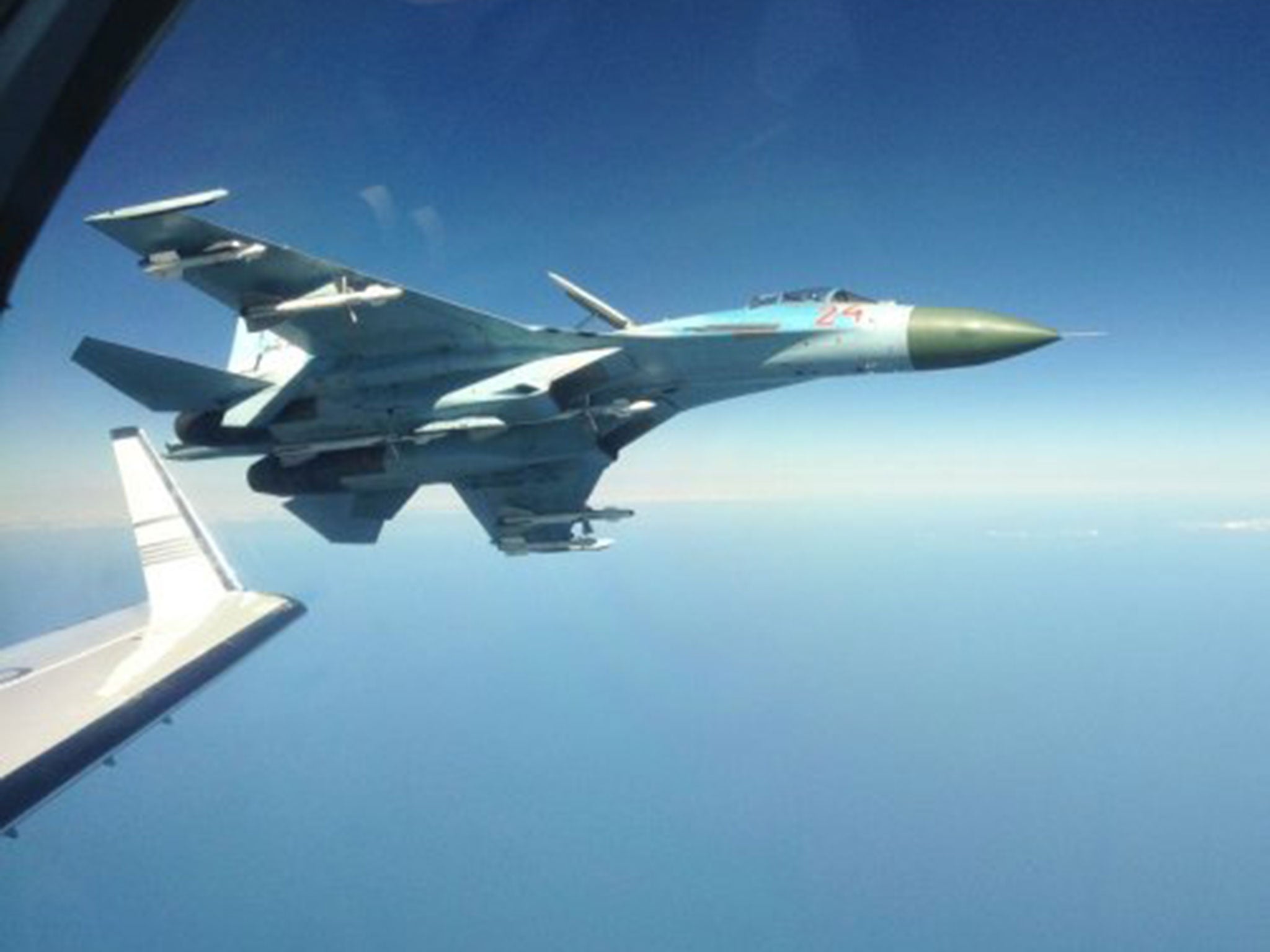Russian warships tailed by Royal Navy as they move through the English Channel
The ships were part of Russia's Northern Fleet and adhered to international law

Your support helps us to tell the story
From reproductive rights to climate change to Big Tech, The Independent is on the ground when the story is developing. Whether it's investigating the financials of Elon Musk's pro-Trump PAC or producing our latest documentary, 'The A Word', which shines a light on the American women fighting for reproductive rights, we know how important it is to parse out the facts from the messaging.
At such a critical moment in US history, we need reporters on the ground. Your donation allows us to keep sending journalists to speak to both sides of the story.
The Independent is trusted by Americans across the entire political spectrum. And unlike many other quality news outlets, we choose not to lock Americans out of our reporting and analysis with paywalls. We believe quality journalism should be available to everyone, paid for by those who can afford it.
Your support makes all the difference.A squadron of Russian warships has moved through the English Channel carrying out exercises while being monitored by the Royal Navy.
The HMS Tyne patrol boat, armed with a canon and machine guns, shadowed the vessels as they moved from the North Sea through the Strait of Dover on Tuesday.
A spokesperson for the Ministry of Defence (MoD) said the Russian ships were permitted to enter UK waters under international law and it is understood that they complied with all maritime reporting regulations.
According to a statement from the Russian defence ministry, the group from the Northern Fleet included a destroyer called Severomorsk, a landing craft, a rescue tugboat and a tank ship, and anchored in the Bay of the Seine, off the northern coast of France, to wait out a storm.
"During the stop, the crew members will conduct a series of activities to combat the underwater subversive forces, hold drills on ensuring survival of the ship when it sinks or catches fire," a Russian military spokesperson said.

They are then expected to head to the Mediterranean.
HMS Tyne finished following the ships after they passed out of British waters into French territory.
A spokesperson for the MoD said: “We are aware that four Russian naval ships have passed through the Dover Strait from the North Sea into the English Channel, which all ships have the right to do under international law.
"The ships were escorted by the Royal Navy warship HMS Tyne as part of her UK maritime security role and have now left UK waters."
In a similar incident in May, a Russian aircraft carrier and a nuclear-powered battle cruiser passed through the English Channel as part of a seven-strong task group, with Royal Navy destroyer HMS Dragon tracking their movements.
It is not unusual for Russian ships to pass the British coast but the latest incident comes amid heightened international tensions after a series of military incursions.

Vladimir Putin hailed his arrival at the G20 summit in Brisbane earlier this month by stationing four warships close to Australian waters.
The President’s show of naval muscle came as his intervention in Ukraine continued to be criticised by international leaders, where Russia is still reportedly sending tanks, artillery and troops.
France was due to deliver a new warship to Russia this week but Francois Hollande suspended it, citing the "current situation" in eastern Ukraine, where both Government forces and rebels have broken a ceasefire.
The Vladivostok, the first of two Mistral-class helicopter carriers ordered by Russia, was due to be sent as part of a controversial 1.2 billion euro (£950 million) contract.
There have been several encounters between Putin’s forces and those of Nato in its allies in recent months, including 40 classified as “near-misses” since April where confrontation was narrowly avoided, according to a report.
London-based thinktank the European Leadership Network (ELN) said Cold War-style “brinkmanship” by Putin’s air force was creating the risk of military escalation across the continent.
It listed near-misses including violations of national airspace, emergency scrambles, narrowly avoided mid-air collisions, close encounters at sea and simulated bombing attacks stretching from the North Sea to the Baltic and Arctic regions and along the US coast.
A spokesperson for Nato said it has conducted more than 100 intercepts of Russian aircraft in 2014 - three times more than were conducted in the whole of 2013.
Additional reporting by PA
Subscribe to Independent Premium to bookmark this article
Want to bookmark your favourite articles and stories to read or reference later? Start your Independent Premium subscription today.
Join our commenting forum
Join thought-provoking conversations, follow other Independent readers and see their replies
Comments